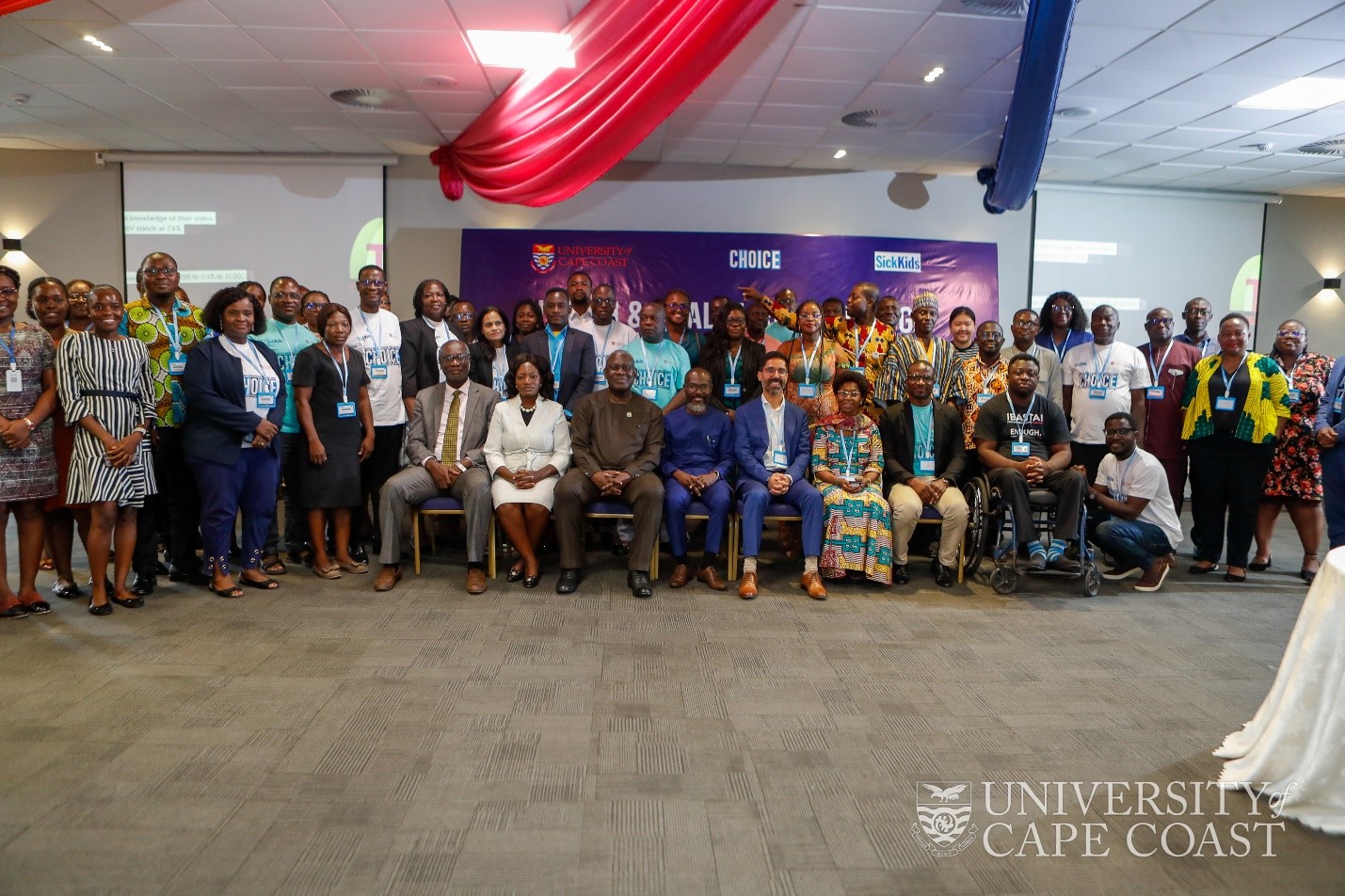Stakeholders in Ghana’s health sector have deliberated on the need to work in unison to address health issues and health-related Sustainable Development Goals (SDGs).
The Stakeholder consultative meeting was held on the theme, “Catalyzing Progress: Straitening Collaborative Approach for Health and Sustainable Development Goals in Ghana” and aimed at bringing together the key stakeholders from a cross-section of the Ghanaian society to work together to provide evidence that will aid advocacy and progress towards the attainment of the SDGs.
The meeting, which saw the inauguration of stakeholder engagement on Health and Health-related Sustainable Development Goals Think Tank, was organised by the Directorate of Research Innovation and Consultancy (DRIC) of the University of Cape Coast (UCC) with support from Vision for Alternative Development, an NGO.
In a keynote address, the Special Advisor to the President on SDGs, Dr. Eugene Owusu, said achieving SDG 3 (Good health and well-being) needed strategic investment to bridge the financing gap where Ghanaians should discuss ramping up health spending and deepening private sector participation.
Without a healthy population, he added, “efforts in education, economic growth and poverty alleviation cannot be realized, therefore, accelerating efforts towards SDG 3 is not just a health priority but an absolute development initiative.”
Dr. Owusu, however, indicated that collaboration meant the use of emerging technologies and smart innovations to bridge the yawning gaps, enhance efficiency and bring healthcare services closer to people who need them most.
An address read by Mr. Juan Manuel Dewez, the Chief of Health and Nutrition at UNICEF, on behalf of the UN Residence Coordinator in Ghana Mr. Charles Abani, underscored the need for stakeholders to collaborate across sectors and communities to ensure equitable access to quality healthcare services.
He said academia, the private sector, governments, and civil society organizations needed to work in tandem with Think Tanks, to provide crucial inputs and drive processes to support development that unearths key and vital issues needed to assist reshape public policy.
Mr. Juan Manuel Dewez, Chief of Health and Nutrition at UNICEF
He said the SDGs were strongly connected and a focus beyond SDG 3 and linkages to other health-related SDGs would help achieve good health and well-being and significantly help attain other SDGs.
“SDG 3 is interconnected and has synergies with SDG1(poverty reduction), SDG 2 (quality education) SDG 5 (Gender Equality) SDG 6 (Clean water and sanitation) and SDG 10 (reduced inequalities)”, he said.
The Country Lead for Health and Health-related SDG (HHSDG), Prof. David Teye Doku, said many countries were not meeting the targets of the SDGs, especially health and health-related issues.
He attributed the cause to climate change affecting the food supply system, nutrition and health-related issues.
He said the Health and Health-related SDG (HHSDG) Ghana Think Tank would foster a collaborative environment where scientific evidence and policy expertise would converge to inform decision-making and drive positive change.
Prof. Doku, who is also the Director of DRIC-UCC, noted that there was a consortium to address climate change to health and complex challenges (CHOICE) Project.
“Specifically, we are aiming at creating active in-country, multi-sectorial think tanks to facilitate achieving the health and health-related Sustainable Development Goals (SDGs)”, he added.
He pointed out that the think tank was not focusing on only SDG 3 but all the other SDGs related to Goal 3.
Panel members discussing issues on HHSDG at the event
Source: Documentation and Information Section-UCC





